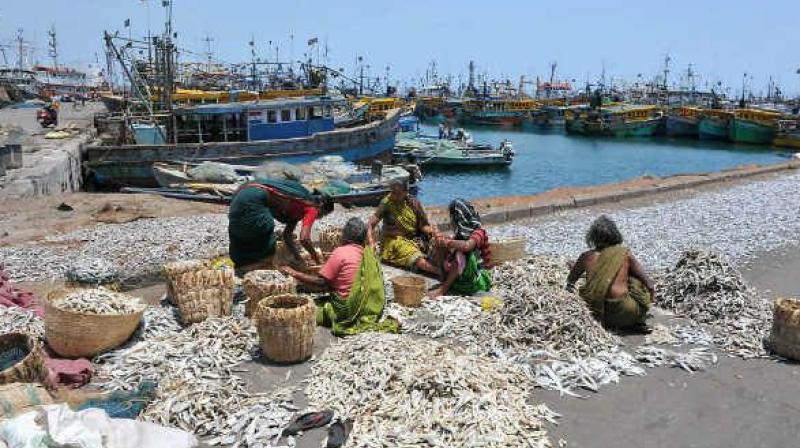Animal waste used for optimisation
Effective utilization will not only reduce the negative environmental impact of its improper disposal but also lead to economic benefits.

Vijayawada: Fibrinokinase enzymes are currently produced using genetically-modified organisms cultured on solid animal waste materials such as cow dung, fish waste and shrimp waste, dairy waste such as whey, or plant waste such as over-ripened grapes. Fish waste has been found to be the best substrate for the production of these enzymes, followed by dairy waste.
“Waste from fisheries has proven to be a cost-effective substrate that is rich in protein, amino acids, oils and other nutrients. Humans consume about 105 million tonnes of fish every year and produce about 34.6 million tonnes of fish waste in the form of viscera, meat, head, and bones. This waste, which is usually dumped along the seashore, pollutes the marine environment. Instead, it can be used as a substrate for the production of fibrinokinases,” says Dr R. Jaya Madhuri.
Another resource that can be utilised as a substrate is shrimp waste. Waste from shellfish and prawns can be used for the production of fibrinokinases as well as other proteolytic enzymes.
Effective utilization will not only reduce the negative environmental impact of its improper disposal but also lead to economic benefits.

